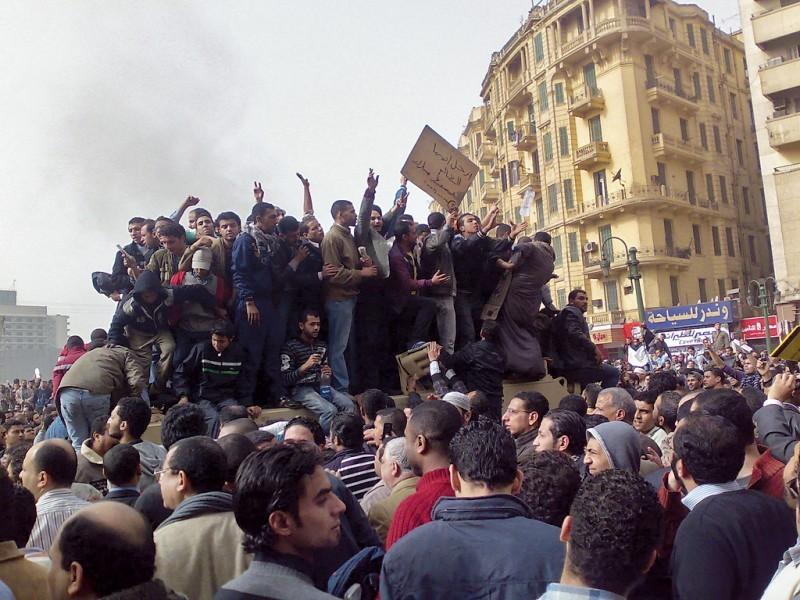Hanton: Where is Obama’s support for democracy in Egypt?
The Egyptian people understand and appreciate the United States’ mutually beneficial relationship with Egypt. It is important for President Obama to take their views into account.
February 1, 2011
At this point it has been hard to miss the massive protests going on across Egypt, supported by normal Egyptians as well as the illegal opposition party, the Muslim Brotherhood. Frankly, I can understand the motivation to finally get rid of a 30-year dictator. It doesn’t seem like he has done a horrible job as president of Egypt over the years, which is one of the reasons he has survived so long. But the Egyptians want change, they want meaningful elections, and who are we to say that they shouldn’t have that right we take for granted?
But wait, we’re the United States, and while we supported the popular uprising in Tunisia to some extent, Obama has been hedging his bets on Egypt. Most of the experts that have been talking to the major news networks note that this is likely the beginning of the end for Mubarak. Yet Obama and the military don’t want to see him leave. I worry that this reluctance to condemn Mubarak and ask him to step aside will make any new leaders of Egypt more reluctant to work with the United States toward stability in the Middle East.
President Obama can work to force Mubarak to restore Internet access, but his real control is in the money that the United States provides to Egypt each year. I’m sure Egyptians would be thankful if Obama made an ultimatum with Mubarak and stated intent to withdraw the U.S.’s $1.3 billion in military funding from Egypt until he promises to refrain from running in the next election, at the very least. Maybe Egyptians would be so thankful that they would keep up their close relations with the U.S. once Mubarak is replaced.
The dark nightmare of the Western world is that a popular revolution in Egypt will be like the popular revolution in Iran years ago. In truth though, Egypt is likely to be civilized in its democratic aspirations, and many experts note that Egyptian politics are not revolutionary and fast moving and hope that their very professional military will moderate any transition.
My point here is that Obama and the U.S. administration need to get on the side of the people in Egypt because right now the Egyptian people understand and appreciate our mutually beneficial relationship with Egypt. As I saw on some protesters’ signs the other day, Egyptians say, “don’t make us hate the U.S.,” showing they are not opposed to allying with America, but that they want to see more pressure from our government on Mubarak. It is true that the relationship may change and it may take time for the United States to get the same promises of help in the Middle East from the new Egypt, but by not supporting the Egyptians, we run a great risk.
Does it make more sense for us to support a doomed dictator who supports peace in Israel and Gaza, enraging his people, or to support his people in the hope that we can urge them to maintain peace in Israeli-Palestinian politics? It seems that these days the United States is willing to bend over backwards to support Israel, even when we disagree with some of their political decisions. We won’t vocally support the Egyptian people because it creates risk for Israel, but in my study of Israel, they seem to be able to take good care of their own country in times of turmoil.
I urge President Obama to take a chance on the Egyptian people and their ability to carry the country through this time of turmoil. Supporting a dictator who only agrees to appoint a vice president, send in the army and allow gangs and prisoners to roam the streets is a bad move. Cut his funding, get him out and allow the Egyptians to create a stronger democracy in their country.







